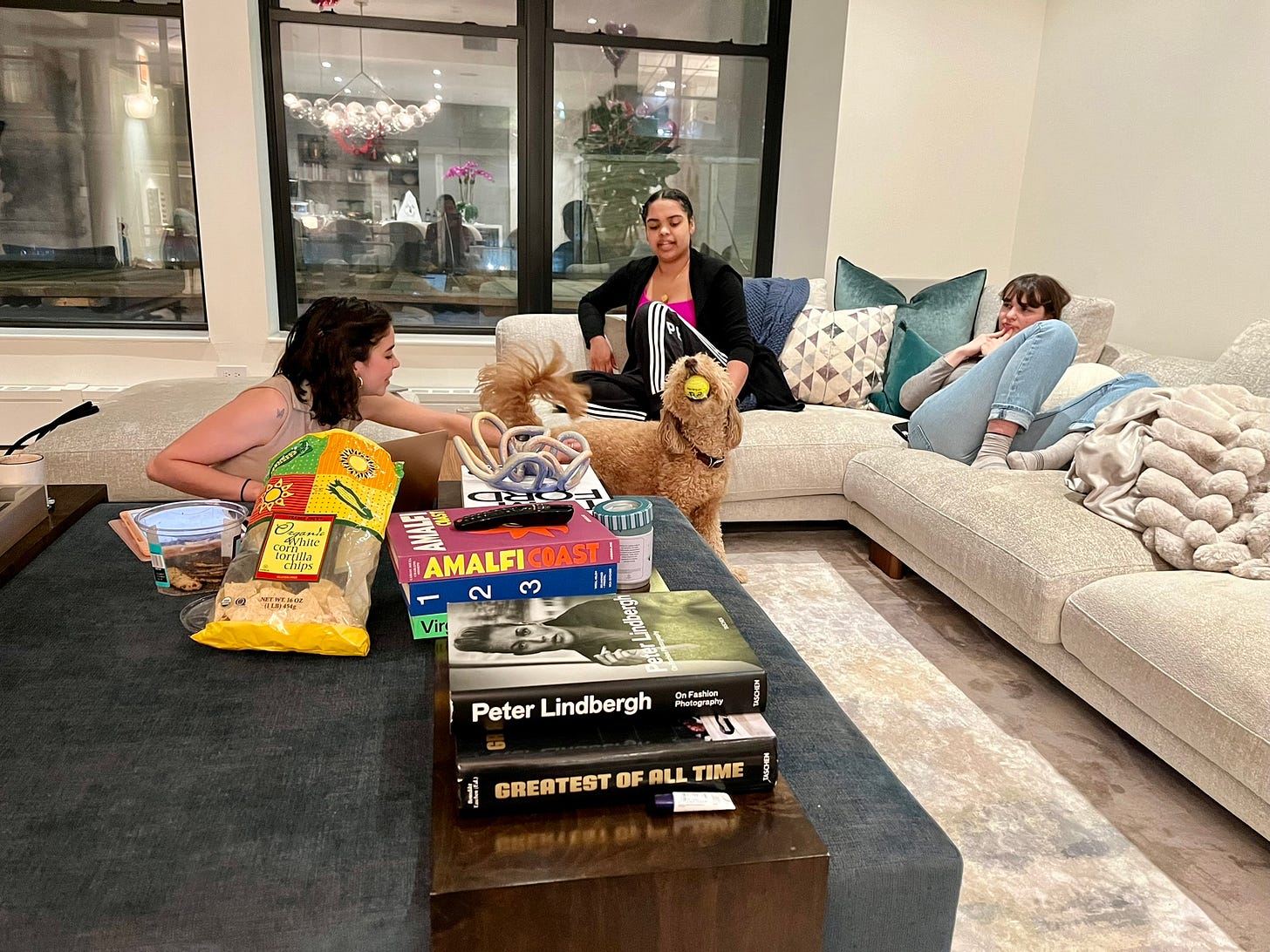Dear Reader,
A lot of people, many of them writers themselves, stereotype writers as introverts. It makes sense: writing is a solitary practice that requires hours spent with no company but your thoughts. I don’t subscribe to the Myers-Briggs introvert-extrovert binary and wouldn’t label myself one or the other, but I do think I crave social interaction more than the average writer. I need time alone to work and recharge, but I can also draw energy from other people. I like hearing my roommates laughing in the living room as I drift off to sleep. I like chatting with the library patrons who give me book recommendations and teach me about the leaf-shaped folium of Descartes. Most of all, I like talking through my writing in a workshop.

Michael Roemer begins his book Telling Stories with the following statement:
“Every story is over before it begins. The novel lies bound in my hands, the actors know all their lines before the curtain rises, and the finished film has been threaded onto the projector when the houselights dim.”1
His argument, expanded over the next five hundred pages, is that stories give us the illusion of choice and free will when, in fact, every choice and every ending in every story we consume has already been determined. I responded to Roemer in my undergraduate thesis on the relationship between writers and readers:
“Every story is over before it begins. Yet, in another sense, no story begins until it is over. That is, no story begins until it is in the hands of the reader . . . though [stories] must reach a certain level of completeness to find their way to the reader in the first place, they have still to be filled in by the reader’s interpretation. Time, in the alternate dimension of written wor(l)ds, is not linear, but circular—the future can and will change the past. What the reader reads changes what the writer wrote.”2
Just by bearing witness to a story, the reader becomes a co-creator with the writer. I experience this every week in workshop. The four of us, all speculative fiction writers and/or poets, illuminate aspects of each other’s stories that we might not have noticed or thought were important. In doing so, we open doors for each other into new words and new worlds.
Last week, I went to one of my workshop buddies with a complaint about writer’s block. I had been struggling with a revision of a project all month and was sick of feeling stuck.3 She sat and listened to me while I talked through the entire plot chapter by chapter. Whether or not my rambling explanation made any sense to her, giving voice to my thoughts in the presence of another helped me organize and understand them. That evening we sat at her kitchen table, set a timer for an hour, and banged out some words as the Assassin’s Creed soundtrack blasted from her speakers. I wrote over a thousand words in one sitting—more than I had been able to accomplish in a week.
As a writer, you have to learn to filter out a lot of opinions. That makes it all the more important to find the people who understand what you’re trying to do and can critique your work accordingly. Even the introvertiest among us need someone to bounce ideas off of. And we all need company to get us through the last of these winter months.
February is almost over. There are better days ahead.
Thanks for reading.
Yours,
Jane
Michael Roemer, Telling Stories: Postmodernism and the Invalidation of Traditional Narrative (Lanham, MD: Rowman & Littlefield Publishers, 1995), 3.
Jane McBride, “Enchanting Writing: The Writer and Her Craft as Inherently Paradoxical” (undergraduate thesis, Columbia University, 2019), 16-17.
In terms of productivity, I hope we can all agree that February sucks.




